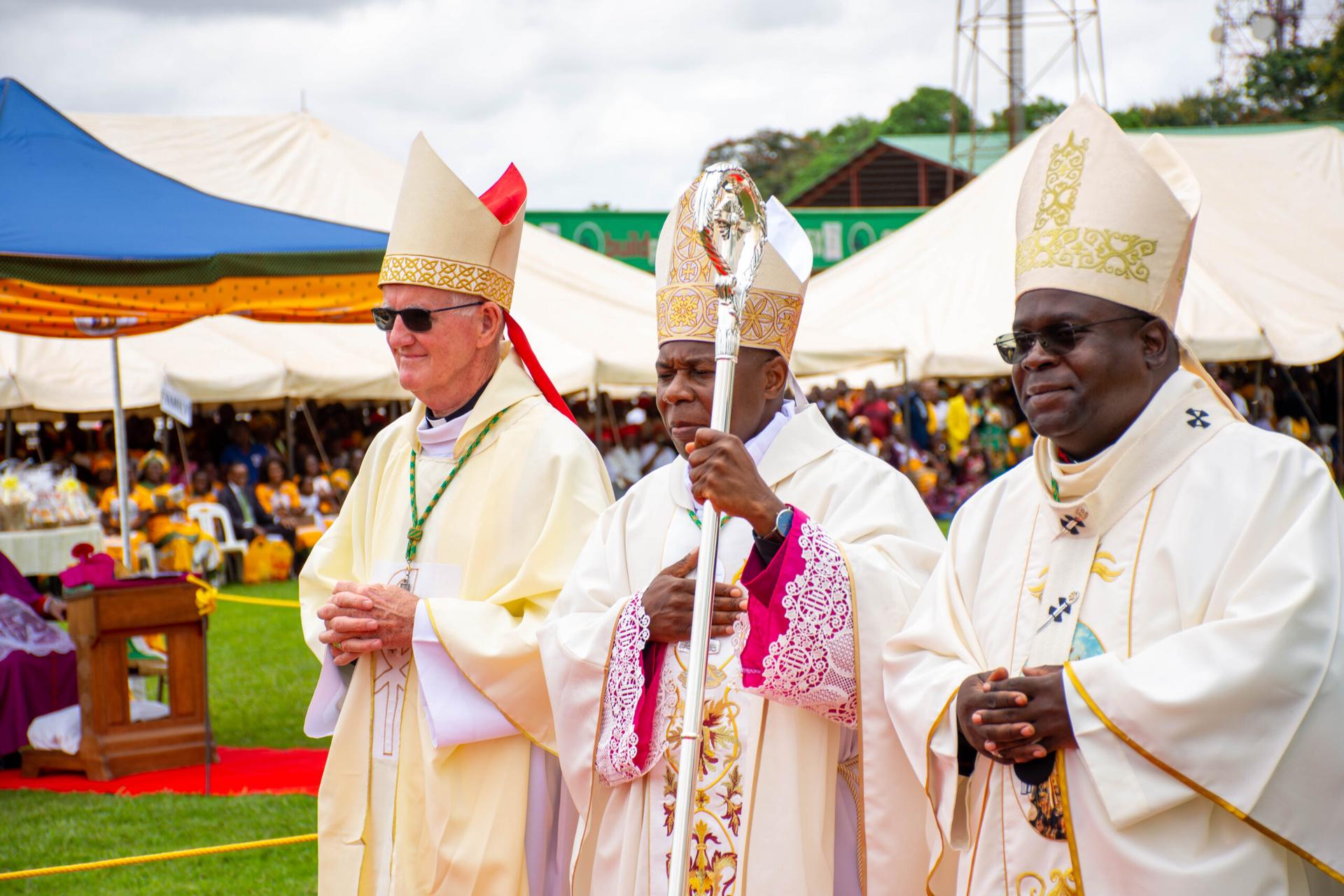YAOUNDÉ, Cameroon – Catholic bishops from Zambia, Malawi, and Zimbabwe have reaffirmed their commitment to establishing a sub-regional Catholic bishops’ conference to address shared challenges.
This new body, to be named the Association of Catholic Bishops’ Conferences of Malawi, Zambia, and Zimbabwe (ACBC-MAZAZI), will separate the three national conferences from their current regional affiliations: Malawi and Zambia from the Association of Member Episcopal Conferences of Eastern Africa (AMECEA), and Zimbabwe from the Inter-Regional Meeting of Bishops of Southern Africa (IMBISA).
The decision was reached at the conclusion of the July 14-19 meeting of the sub-regional Conference of Catholic Bishops, following initial discussions in February 2020.
No timeline was given for the eventual operationalization of the ACBC-MAZAZI, but Archbishop George Desmond Tambala of Lilongwe, Chairperson of the Episcopal Conference of Malawi, said that such a sub-regional conference will be critical to resolving the problems plaguing the three nations.
“Such problems,” the archbishop said, include “secularism, breakdown of the traditional family, poverty, and environmental degradation.”
He fleshed out the problems, describing poverty as “the wolf the Church should not stay quiet about.”
“When we put our countries on the global level, we seem to be at the bottom of all the countries in terms of economic growth and development,” Tambala said in a July 16 homily to mark the start of the five-day assembly of the members of the Episcopal Conference of Malawi (ECM), the Zambia Conference of Catholic Bishops (ZCCB), and the Zimbabwe Catholic Bishops’ Conference (ZCBC) that took place in Malawi.
“We have seen poverty in the villages; we are serving people who at times go for a day without a meal; some cannot even afford school fees for their children and also expensive treatments in the hospital,” he continued.
“These are the people we are serving, and poverty is the wolf that the Church should not stay quiet about,” the archbishop said.
The poverty statistics in the three countries are scary. According to both the World Bank and the United Nations, over 70 percent of Malawi’s more than 20.41 million people live below the international poverty line of $2.15 a day. In Zambia, Poverty reached 60 percent of the population in 2022, up from 54.4 percent in 2015 and in Zimbabwe, it lingers about 45 percent.
The high levels of poverty are driven – and worsened – by climate variations that disrupt food supply, galloping unemployment, sluggish economic recovery, limited job creation, declining labor earnings and population growth.
“We are talking about a sense of helplessness, with massive unemployment and abject poverty. People, especially our young people, don’t see any meaning in life, and they just almost want to give up,” said Bishop Paul Horan, President of the Zimbabwe Catholic Bishops’ Conference (ZCBC.)
Tambala said the Church will have to deal with this “wolf” of poverty.
And as if this wasn’t enough, the Malawian archbishop expressed worry that the rich and diverse cultural heritage of the southern African countries and indeed of Africa at large has been subjected to negative foreign influences, which have also had the effect of disintegrating the African family.
“We are so much blessed with our cultures; we are blessed with the extended families, clans, and tribes,” Tambala said.
“These are human but also God-given support for the family,” he added. But what is happening in the world today gives the cleric less confidence, and he wonders if “the next generations will grow up in a home, will they have someone to call a parent?”
The archbishop said the Church has a role to play to defend the African family against “other types of erroneous and heretical teachings regarding the family.”
He spoke out against pervasive secularism, complaining that it has removed God from daily life.
“We have become another tower of Babel; we have become a little bit arrogant; we are playing God now; we think we know it all,” he said.
Tambala railed against individualism and materialism, calling it the “wolf that is in front of us.”
“How do we protect our flock from this ungodliness or mentality?” he asked.
“A godless society is open to any kind of evil; this is something that we may have to think about,” the archbishop added.














